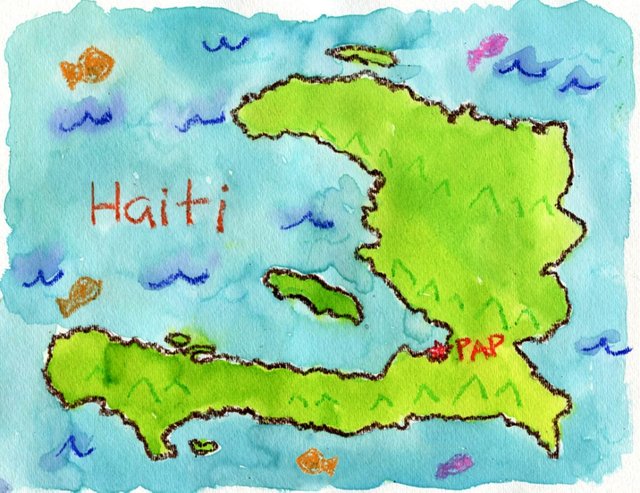The BENEFITS of CRYPTOCURRENCY in DEVELOPING COUNTRIES!

Hi There STEEMIANS! Its been 4 days since my last post- Today i thought it very necessary to post about something as important as why Cryptocurrency is a huge potential for the poor in countries like Haiti-
Take a read. Comment and let me know your thoughts! :)
************
There is tremendous potential for the poor and marginalized of the world to find benefits from these technologies.
How? You ask- Well first of all, the benefits of the technologies of cryptocurrency is not only directed towards countries like Haiti- even people in impoverished urban communities in the United Sates can find tremendous advantage in this type of banking or credit infrastructure-
Here are the different opportunities that can help a country like Haiti.
a) They Have the potential to reduce Remittance Fees
b) Allowing better access to Financial Institutions
c) Combat Inflation
d) Help End Corruption -
1-They Have the Potential to help reduce remittance fees-
The Haitian DIASPORA living abroad in wealthier societies such as the United States, Canada, France etc... contributes more than 1 billion U.S Dollars to the Haitian Economy- Whether by sending in money to relatives, or paying their families rent etc... they make up a huge percentage of the country's GDP-
For years they have used intermediaries such as Money Gram, Western Union or Uni transfer etc...., which charge exorbitant fees, to send their loved ones money.
And, in 2011 the new government of Michel Martelly passed a law demanding that an additional $1.50 by these institutions be put aside for the well-being of the country-
Till this day, many of us have wondered if that money has really been put to use!
So, imagine what that would mean if someone in the U.S sending money to Haiti can Transfer USD into Bitcoins for the recipient to withdraw in Haitian Gourdes?
In the Philippines there is a startup called REBIT which allows the process as explained above- Rebit also allows its users to send money at a lower rate.
It has been estimated that $30 Billion is sent from overseas to families around the world in 2015-
2-How can CRYPTOCURRENCY allow marginalized Individuals better access to banking?
While DIGICEL (Phone Company in Haiti and certain countries in the Caribbean ) has allowed even the most marginalized individuals in the country access to communication and the internet by buying "minutes", it has yet to work with institutions in order to create easier access to banking. It is estimated that, by 2020 60% of Haiti will have access to a smartphone and 70% of the world population is expected to own a smartphone by then as well.
These types of technologies will give them a way to a global bank account and access to banking services through Bitcoin-
Imagine how this can help them to improve their financial circumstances.
3- How can CRYPTOCURRENCY help with inflation?
The Haitian GOURDE is barely holding on as it muscles everyday with the U.S dollar-
It has become even easier to pay in USD than to use the HTG- The instability of the gourde causes all kinds of socio-economic as well as political tensions in the country giving small businesses and the country's citizens little hope in the faith of the HTG-
So how what is the solution? CRYPTOCURRENCIES such as Bitcoin is the one sure way to help individuals in Haiti or other countries facing the same issues, to protect themselves against inflation and allow another option to the county's unstable economy.
The first live Bitcoin exchange in the world was Vietnam's VBTC- Argentina has currently seen a growth in the use of Bitcoin due to the country's shaky currency.
4- Cryptocurrency can help fight Corruption-
Obviously for now, it is seen as a theory that cryptocurrency can help end corruption especially in developing countries- but here's why it can help in at least reducing it.
In Haiti for example, there is not a system in place for checks and balances- Corruption exists, but there is neither a way to identify it nor reverse it. Transactions are not verified or analyzed. With Bitcoin, it is not really anonymous but rather pseudonymous. It is because the public ledger allows anyone to verify and analyze transactions. What does that mean? The Bitcoin address of every sender and recipient is permanently recorded. In the case of small transactions, one can keep its identity a secret. However, with bigger transactions, corruptions are much easier to be identified.
There is certainly the potential that a transition to a cryptocurrency based economy could help combat corruption especially in a country like Haiti.
Of course cryptocurrency or bitcoin will not change all of our problems- It is not a magic potion drink and that will fix our economy. But they are certainly great tools that can help the marginalized individuals in countries like Haiti or impoverished communities in the United States, while implementing the right planning and intentions.
There are many other ways that cryptocurrency can help Haiti.
The examples stated above are a few of many ways to help Haiti.
Whether the elite of Haiti will allow or have the compassion to leverage these technologies to help those who need it the most, is another question.
I want to work in bringing a different way to handle money inside of a country that is not so poor after all, but lacks better economic practices and political willpower.

Thanks For Reading!
Sources: Google, Wikipedia, engadget, cryptocurrency news